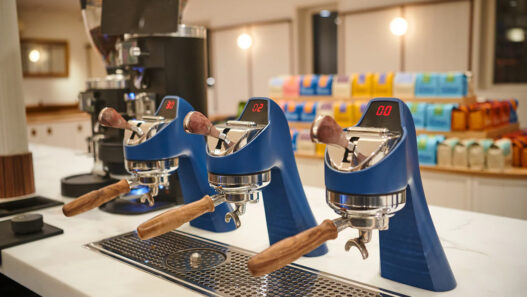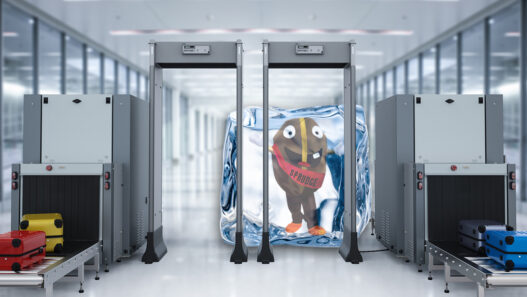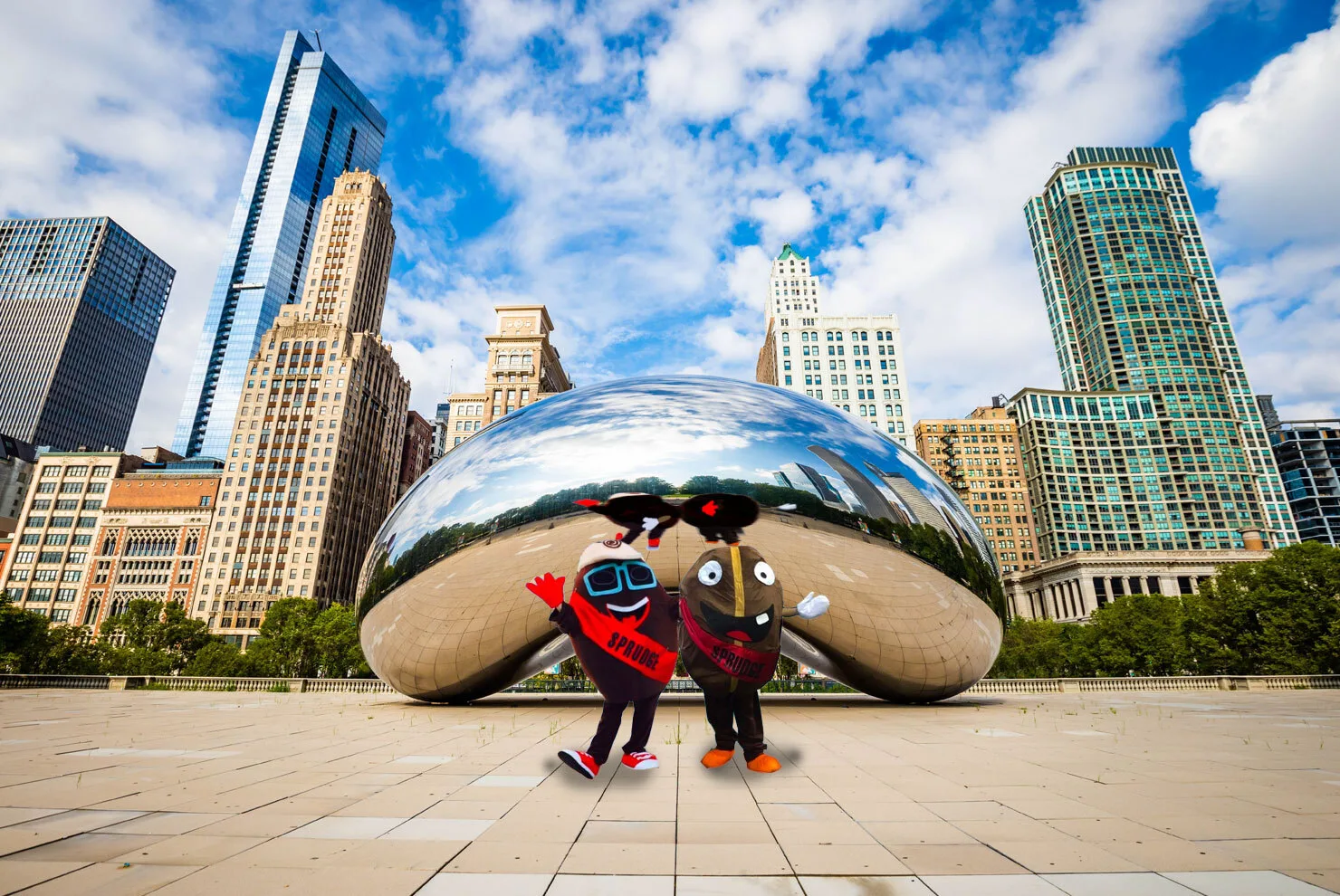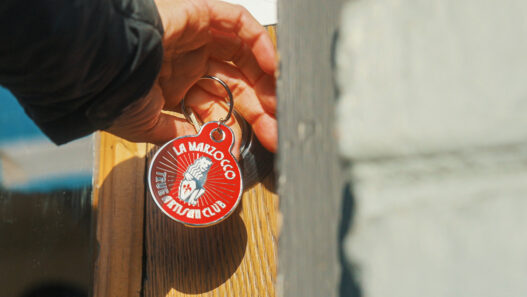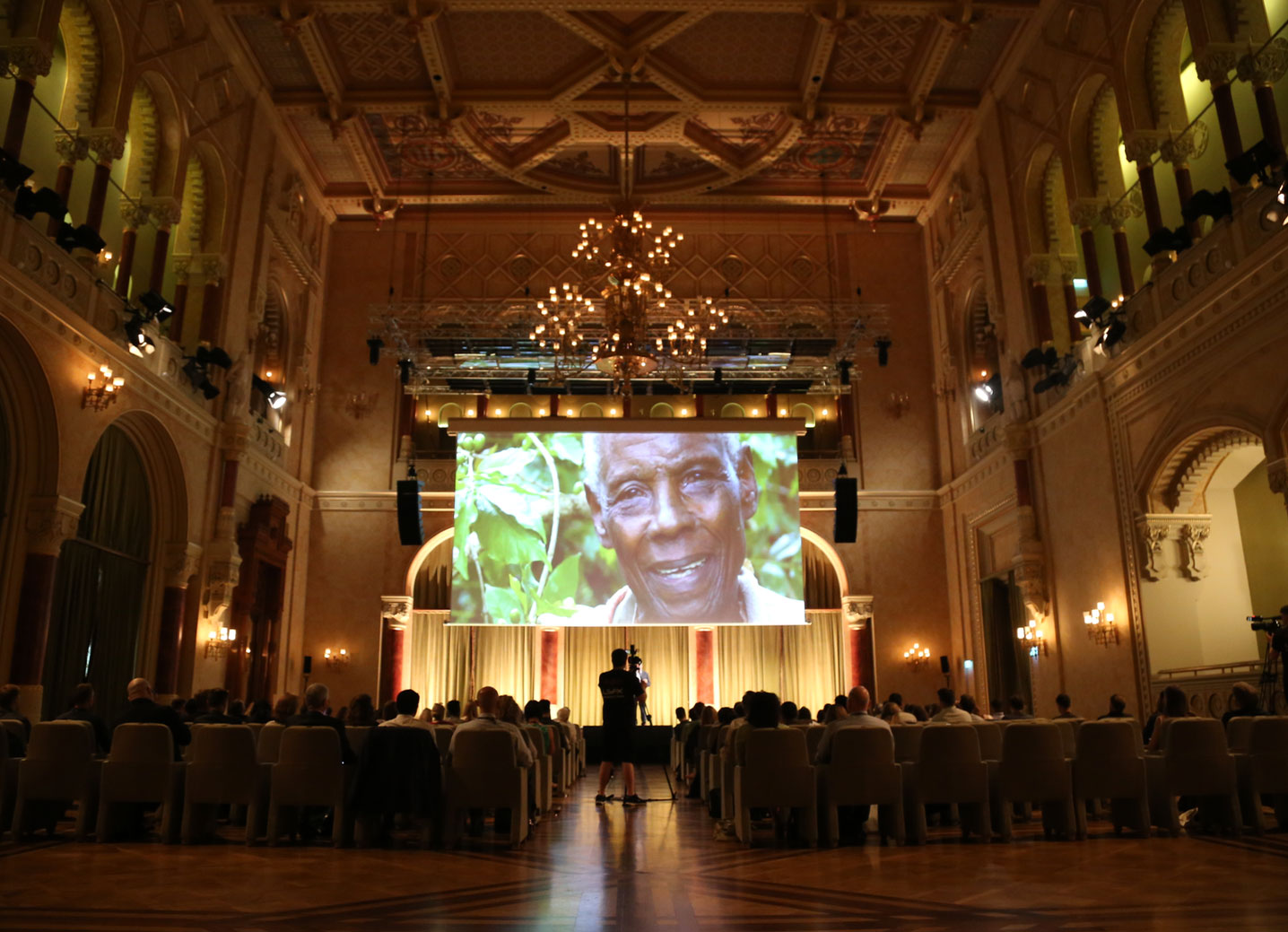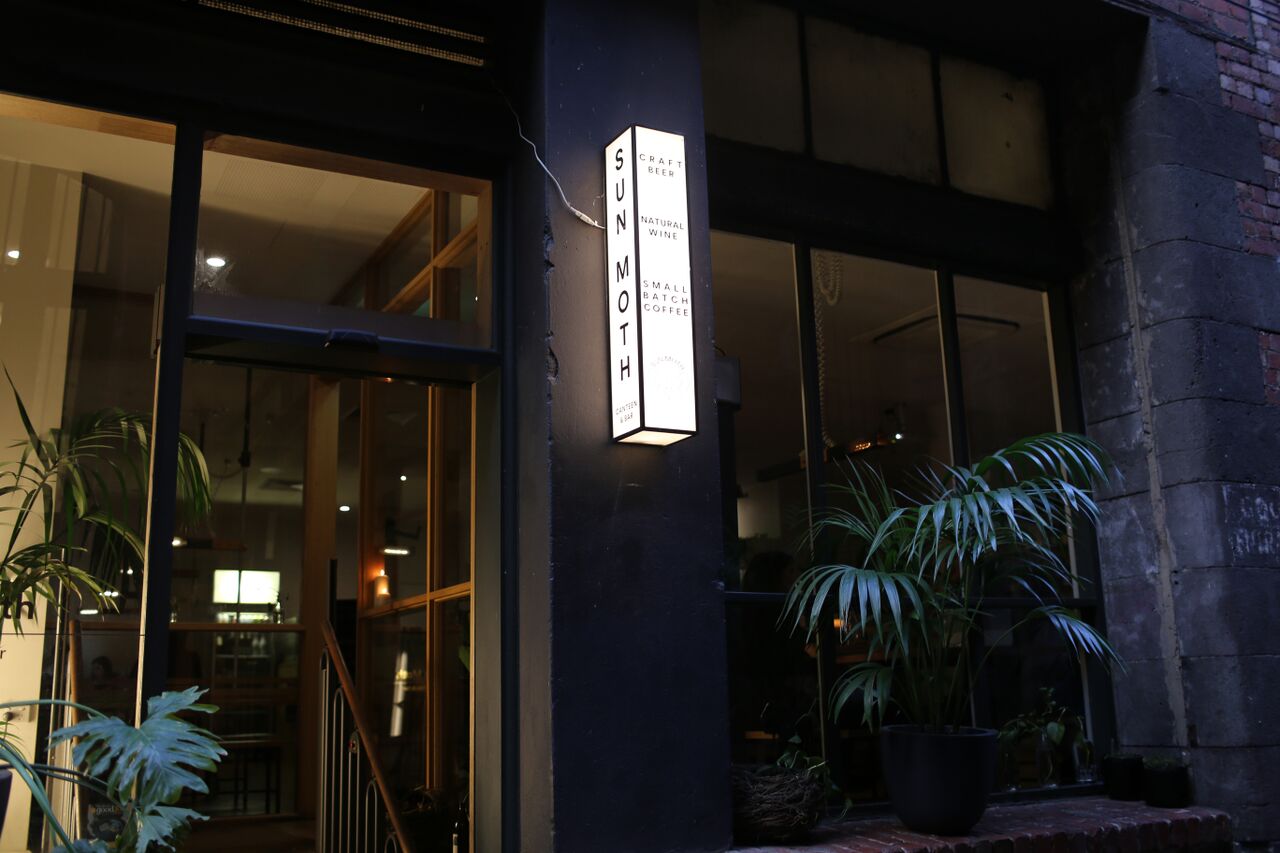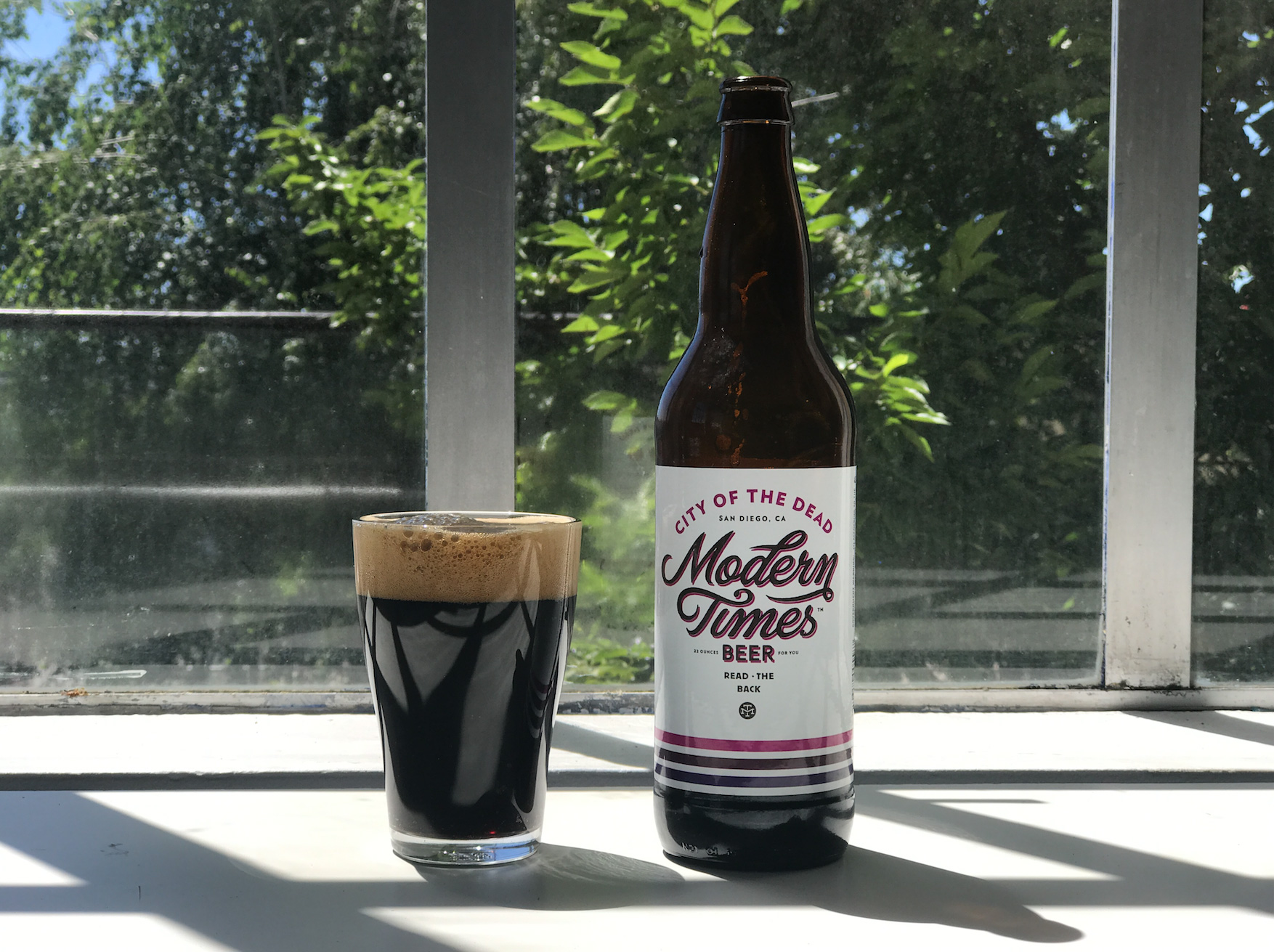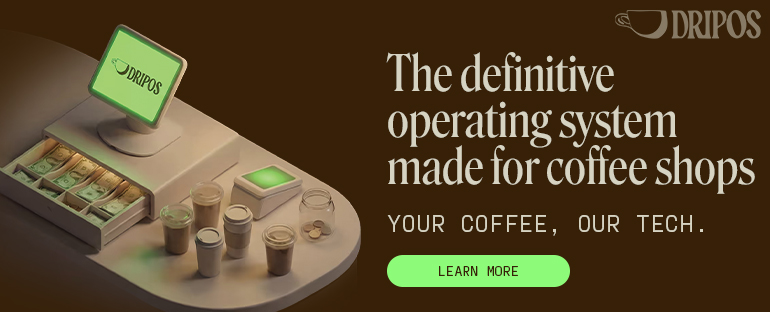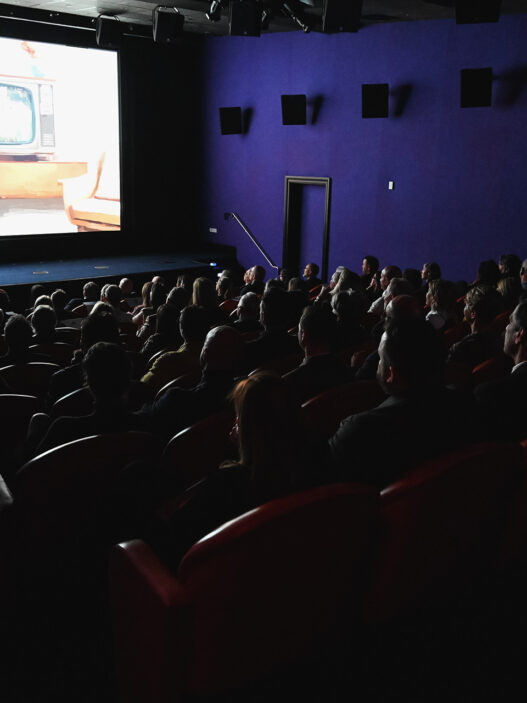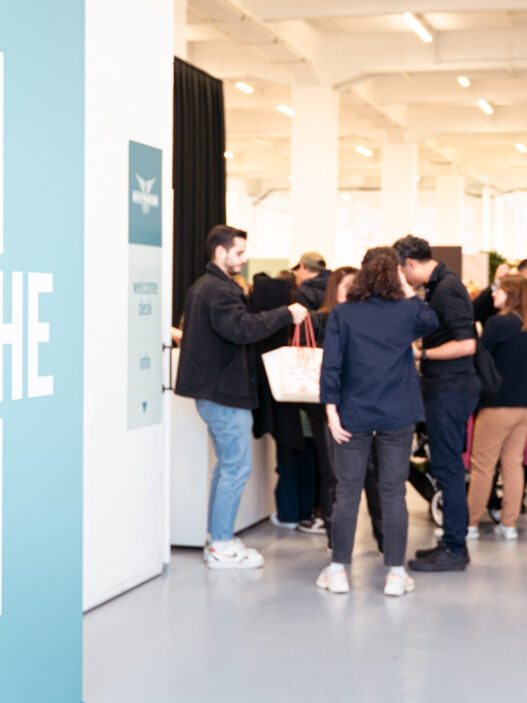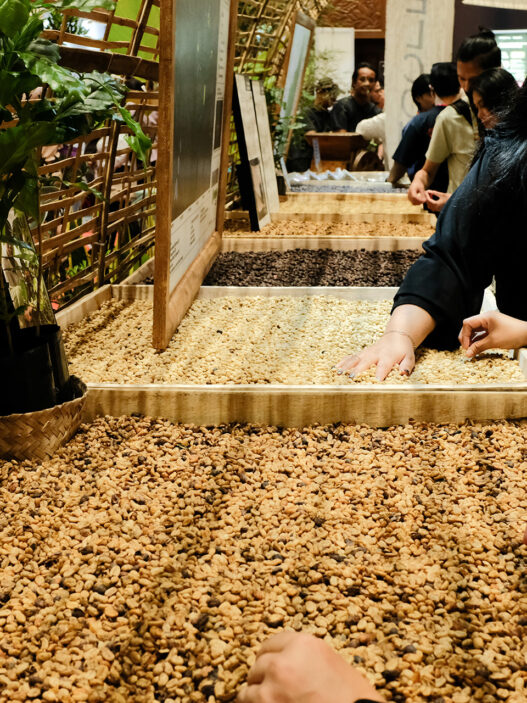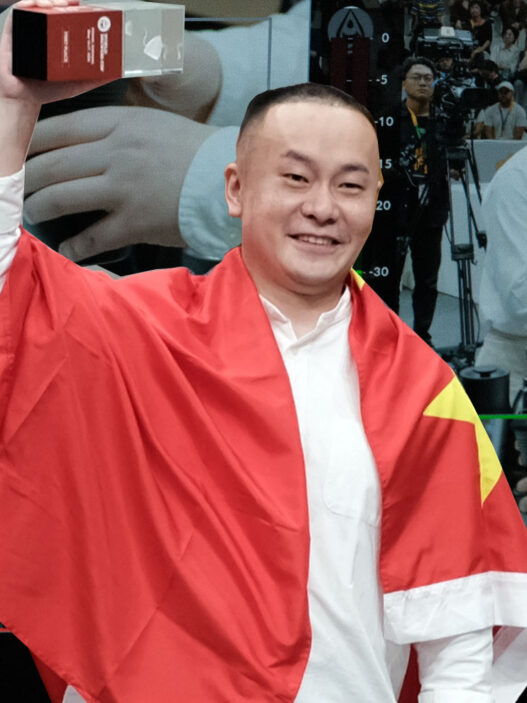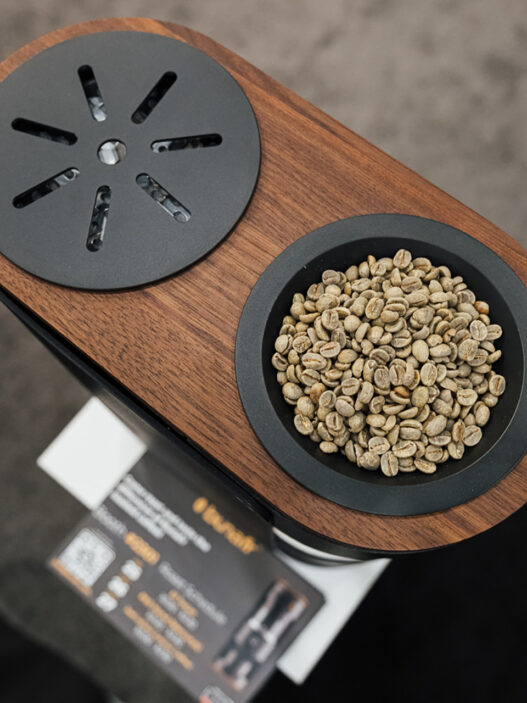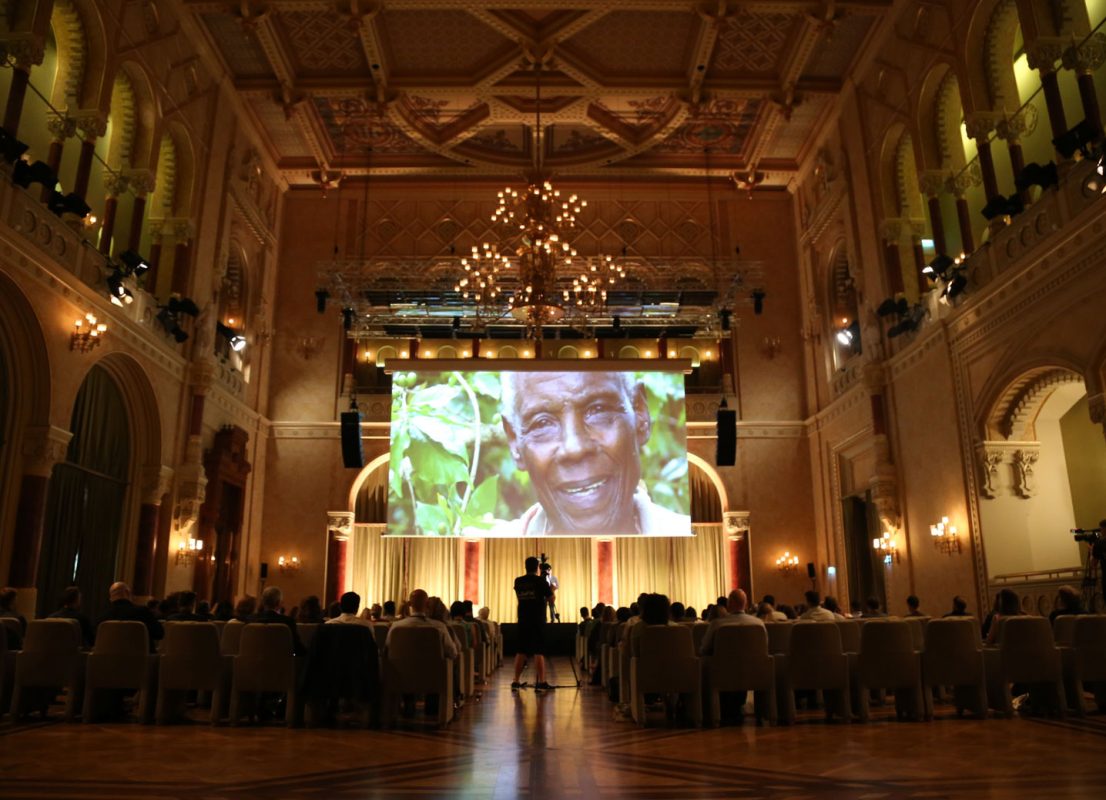
On Monday, June 12th, thought leaders, association members, and future industry pioneers collected in the grandiose Pesti Vigadó for a full day of mind-expanding talks we’ve come to know as Re:Co Symposium. The event has evolved in the nine years since its inception and recent rebrand. As a brand new attendee of both of 2017’s Symposium events (in Seattle and Budapest, respectively), I can’t express the personal honor I felt to have been amongst such inspiring and innovative people and ideas. After a morning coffee service provided to us by the Barista Guild of Europe, we gathered in the great theater hall to begin.
Specialty Coffee Association Executive Director Ric Rhinehart started us off with the state of the industry and the message was clear—the future isn’t looking too good for coffee. It was simply a SWOT analysis of the future of coffee with a heavy focus on our current weaknesses and threats. Climate change, an aging farmer population, and a stagnated production of washed arabica coffee were just a few of the challenges named.
But even with serious problems threatening the very crop that upholds the livelihoods of millions of people along the value chain, strengths and opportunities do exist.

“Consumer consumption is increasing, so it’s a good time to be in coffee sales,” says Rhinehart. I was able to gather that while consumption was on the up and up, there would also be an increased need for traceability and transparency throughout the coffee supply chain, as consumers will inevitably become more aware of where their beloved caffeinated beverage is coming from. If for some reason that wasn’t to be the case, it would be imperative for us as an industry to establish that standard.
Rhinehart’s talk offered a clear road map for the proceeding talks throughout the day. Thirteen other speakers were grouped into four sessions that covered a wide range of topics to give us glimpses into what was, is, and could be for the coffee industry, including talks like “Risks And New Solutions,” “Flavor And Microbiology,” “Generations And Innovations,” and “Sensory Science And Sensory Design.”
Transparency and traceability were two buzzwords I heard often throughout the day, but they were definite themes weaved through each and every talk. Jessi Baker (founder of Provenance.org) brought information on blockchain and its ability to use data technology to digitally trace the path of a product from producer to consumer. Raphael Studer (co-founder of Algrano) formulated the idea of coffee producers branding themselves. Additionally, he said giving producers online access would enable an equal flow of information from producer to consumer and back again, where currently the case is only one way.
Studer summed it up well, and we can all agree: “Increasing transparency increases the coffee market.”
🗣 Increasing transparency increases the coffee market!! Learn it, live it, apply it. #RecoBudapest
— Sprudge Live! (@SprudgeLive) June 12, 2017
As coffee flowed and the conversations evolved, we heard about the status of cascara as its own food category, cheese fermentation and microbes, and the uniqueness of our noses. I was thoroughly surprised to learn that we as humans are not able to smell every single thing on the SCA flavor wheel!
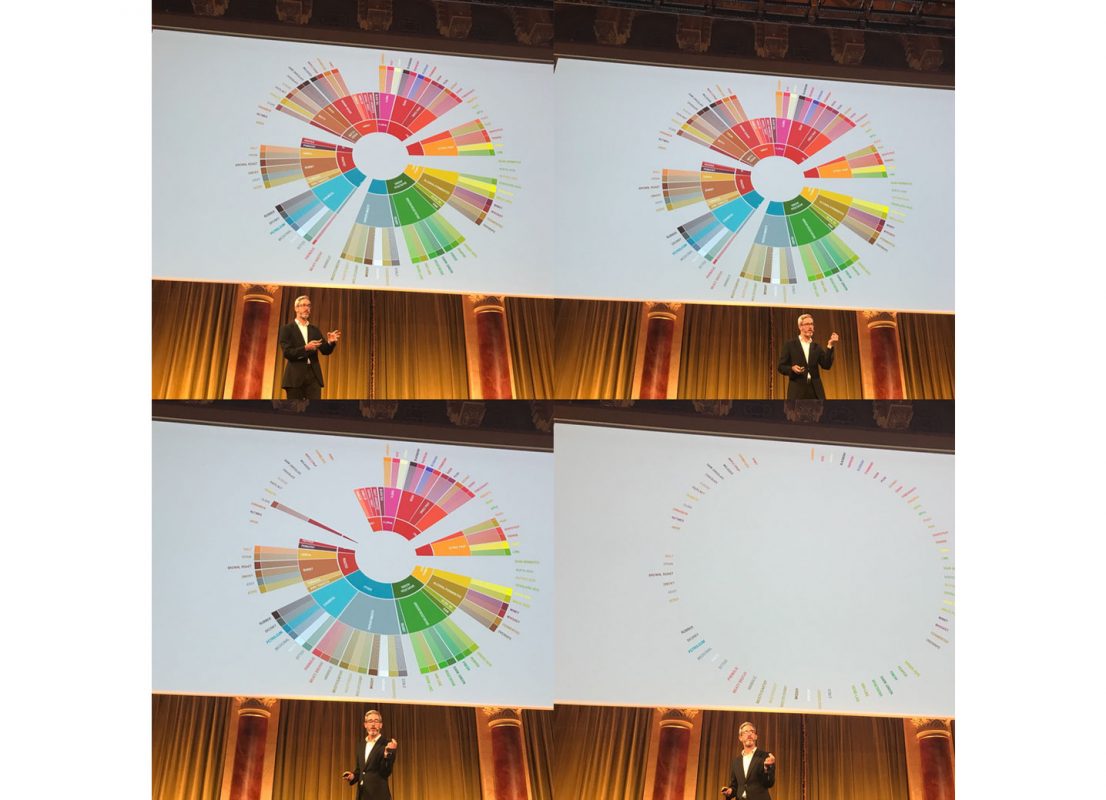
Dr. Henry “Hoby” Wedler was a repeat speaker from Re:co Seattle, and a highlight again here in Budapest. Dr. Wedler is a blind food and beverage sensory expert with a Ph.D in chemistry, and he spoke again to the Symposium crowd about sensory design. He dove into using all of our available senses to experience coffee—not only for personal sake, but through “universal accessibility,” too, for the consumer.
After this full day of hearing from some of the most innovative minds across multiple industries, the proceeding three days on the World of Coffee floor yielded a new look for the event, in the form of Re:Co Interactive. This programming made for three days of in-depth, intimate conversations and sensory sessions that created more ties to coffee and where we can be headed as an industry.
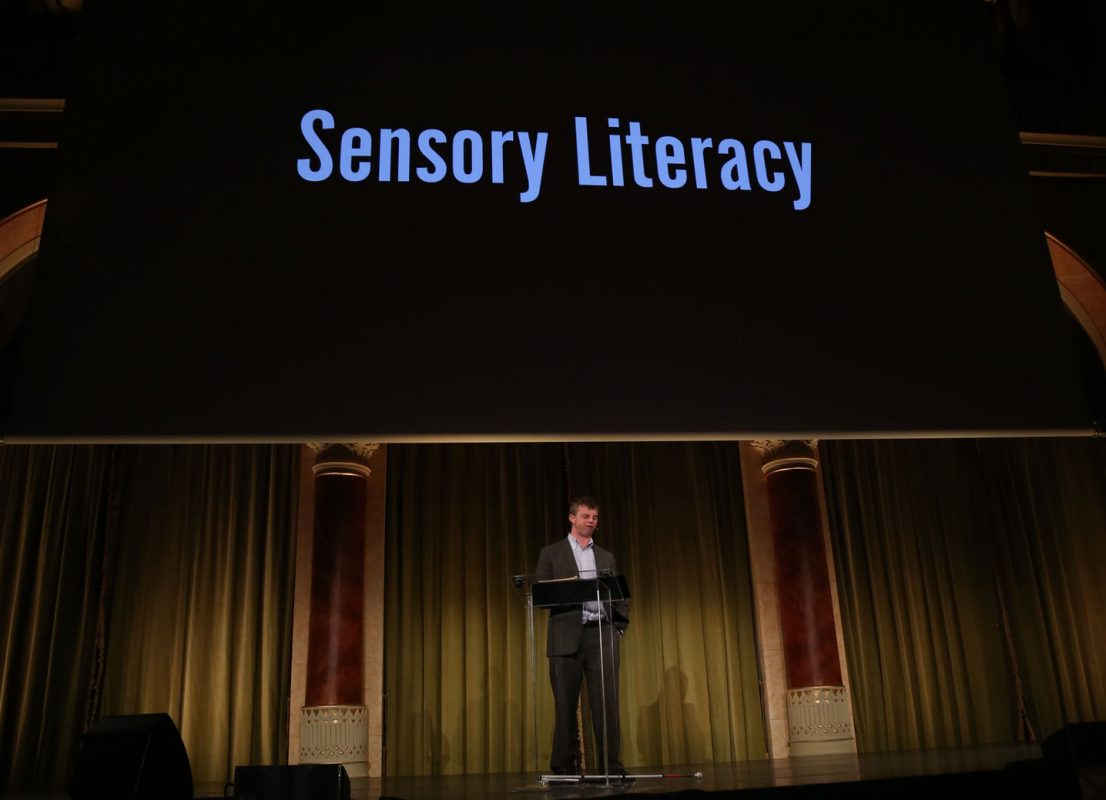
The sensory experiences of Re:Co Interactive were some of my favorite moments of the entirety of Re:Co—and not just because some of them featured alcohol tastings and pairings with coffee. These small sessions gave an opportunity for attendees to engage directly with some of the speakers, as well as expand our minds, and palettes, as we made connections between beer malt and hops to coffee roast profiles, for example. Re:Co fellow presentations and debate sessions were also held, allowing for speakers and attendees to discuss with each other their thoughts and ideas on the coffee industry’s current issues from their own corners and concentrations.
"Coffee is very humbling because it's truly human-produced." – Dr. Hoby giving perspective on how coffee has taught him. pic.twitter.com/QwxyKXgjwc
— Sprudge Live! (@SprudgeLive) June 13, 2017
One session led by the aforementioned Raphael Studer focused on accessibility of information to coffee producers. In it, Re:Co Fellow Vava Angwenyi of Vava Coffee out of Nairobi, Kenya, called out the European coffee trading community for their lack of activity in Africa.
“It is much easier for the United States to do trade with Central and South America due to location,” Angwenyi stated. “Europe really should be doing more trade with Africa. You all know what’s going on there—you know the lay of the land, even know some of the languages. You did colonize us, after all.”
"European coffee should be trading more with Africa because you know the lay of the land — you colonized us." #HOTTAKE #RecoInteractive pic.twitter.com/ZYylc3BuCR
— Sprudge Live! (@SprudgeLive) June 15, 2017
With unapologetic conversations like this one happening between industry professionals and leaders of all backgrounds, I felt the Re:Co Interactive format was wildly successful. When asked about the possibility of a similar format happening at Re:Co Seattle 2018, content producer Matt Slater felt optimistic. “It’s a brand new and we had the opportunity to do it, and it’s shown us what could be for Re:Co next year.”
Re:Co Budapest offered a perfect glimpse into the future of Re:Co Symposium, and with hopes to expand its accessibility (and maybe even a talk of my own), it will be an event many will continue to travel from all over to take part.
You can see a full live feed coverage of Re:Co Budapest on Twitter at @SprudgeLive, full of more of my notes from the event, favorite quotes, photos, and yes, some emojis. And be sure to check out the #RecoBudapest hashtag for much more critical thought from the event.
Michelle Johnson (@thechocbarista) is the publisher of The Chocolate Barista, and the marketing director at Barista Hustle. This is Michelle Johnson’s first feature for Sprudge.




